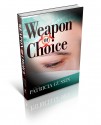

November 5 – 11: “Why do you read and write thrillers?”
 This week, join ITW Members Aimée Thurlo, John Wayne Falbey, AJ Colucci, Patricia Gussin, Thomas M. Malafarina, Elizabeth Goddard, Shirley Tallman, Richard Doetsch and Chuck Greaves as they discuss why they choose to read and write thrillers. You just know it’s going to be thrilling!
This week, join ITW Members Aimée Thurlo, John Wayne Falbey, AJ Colucci, Patricia Gussin, Thomas M. Malafarina, Elizabeth Goddard, Shirley Tallman, Richard Doetsch and Chuck Greaves as they discuss why they choose to read and write thrillers. You just know it’s going to be thrilling!
 A daredevil at heart, internationally bestselling author Richard Doetsch revels in the fact that his thrill-junkie protagonist in his acclaimed Michael St. Pierre series is based on himself and his adventurous exploits (skydiving, Scuba, rock climbing, breaking into forbidden places, racing, etc.) Doetsch published The Thieves of Heaven, in 2008 to critical praise, and hasn’t looked back since. Two additional Thieve cliffhangers followed (The Thieves of Faith in 2008 and The Thieves of Darkness in 2010), along with two highly acclaimed stand-alone novels, The 13th Hour and Half-Past Dawn. Not to mention, Hollywood loves Doetsch as Heaven, Darkness, and The 13th Hour are all being adapted to film by major studios. Now, with THE THIEVES OF LEGEND (November 27, 2012), Doetsch once again plunges his countless readers into the rarified world of ex-thief extraordinaire Michael St. Pierre.
A daredevil at heart, internationally bestselling author Richard Doetsch revels in the fact that his thrill-junkie protagonist in his acclaimed Michael St. Pierre series is based on himself and his adventurous exploits (skydiving, Scuba, rock climbing, breaking into forbidden places, racing, etc.) Doetsch published The Thieves of Heaven, in 2008 to critical praise, and hasn’t looked back since. Two additional Thieve cliffhangers followed (The Thieves of Faith in 2008 and The Thieves of Darkness in 2010), along with two highly acclaimed stand-alone novels, The 13th Hour and Half-Past Dawn. Not to mention, Hollywood loves Doetsch as Heaven, Darkness, and The 13th Hour are all being adapted to film by major studios. Now, with THE THIEVES OF LEGEND (November 27, 2012), Doetsch once again plunges his countless readers into the rarified world of ex-thief extraordinaire Michael St. Pierre.
 Thomas M. Malafarina is a horror fiction writer from Pennsylvania. He has published four novels, “99 Souls”, “Burn Phone” “Eye Contact” and “Fallen Stones” and story collections “13 Nasty Endings”, Gallery Of Horror”, “Malafarina Maleficarum Volume One” and “Volume Two” as well as a collection of single-panel cartoons called “Yes I Smelled It Too: Cartoons For The Slightly Off-Center” through Sunbury Press of Mechanicsburg, PA. Thomas’ short stories have been featured in numerous anthologies.
Thomas M. Malafarina is a horror fiction writer from Pennsylvania. He has published four novels, “99 Souls”, “Burn Phone” “Eye Contact” and “Fallen Stones” and story collections “13 Nasty Endings”, Gallery Of Horror”, “Malafarina Maleficarum Volume One” and “Volume Two” as well as a collection of single-panel cartoons called “Yes I Smelled It Too: Cartoons For The Slightly Off-Center” through Sunbury Press of Mechanicsburg, PA. Thomas’ short stories have been featured in numerous anthologies.
 Aimée and David Thurlo have been married for forty-two years. Aimee moved in next door to him and it was love at first sight. Three weeks later, they were married. David was raised on the Navajo Indian Reservation and left Shiprock to complete his education at the University of New Mexico. Aimée, born in Havana, Cuba, has lived in New Mexico for forty one years. The team’s popular Ella Clah mystery series, featuring a Navajo woman police officer, won a New Mexico Book Award. Their Lee Nez Navajo vampire novels are currently under option to Red Nation Films in Hollywood. They also write romantic suspense novels for Harlequin and have sold more than a million copies worldwide.
Aimée and David Thurlo have been married for forty-two years. Aimee moved in next door to him and it was love at first sight. Three weeks later, they were married. David was raised on the Navajo Indian Reservation and left Shiprock to complete his education at the University of New Mexico. Aimée, born in Havana, Cuba, has lived in New Mexico for forty one years. The team’s popular Ella Clah mystery series, featuring a Navajo woman police officer, won a New Mexico Book Award. Their Lee Nez Navajo vampire novels are currently under option to Red Nation Films in Hollywood. They also write romantic suspense novels for Harlequin and have sold more than a million copies worldwide.
 Best-selling author Patricia Gussin is a physician who grew up in Grand Rapids, Michigan, practiced in Philadelphia, and now lives on Longboat Key, Florida. She is also the author of Shadow of Death, Thriller Award nominee for “Best First Novel,” Twisted Justice, The Test, and And Then There Was One. She and her husband, Robert Gussin, are the authors of What’s Next…For You?
Best-selling author Patricia Gussin is a physician who grew up in Grand Rapids, Michigan, practiced in Philadelphia, and now lives on Longboat Key, Florida. She is also the author of Shadow of Death, Thriller Award nominee for “Best First Novel,” Twisted Justice, The Test, and And Then There Was One. She and her husband, Robert Gussin, are the authors of What’s Next…For You?
 Elizabeth Goddard is the award-winning author of more than a dozen novels, including the romantic mystery, The Camera Never Lies—a 2011 Carol Award winner. A 7th generation Texan, she graduated from the University of North Texas with a B.S. in computer science and worked in corporate America for a decade before retiring to write novels.
Elizabeth Goddard is the award-winning author of more than a dozen novels, including the romantic mystery, The Camera Never Lies—a 2011 Carol Award winner. A 7th generation Texan, she graduated from the University of North Texas with a B.S. in computer science and worked in corporate America for a decade before retiring to write novels.
 Chuck Greaves, a former L.A. trial lawyer, is the award-winning author of this year’s HUSH MONEY and next year’s GREEN-EYED LADY, both legal thrillers, both from St. Martin’s Minotaur. His second novel HARD TWISTED (as C. Joseph Greaves), a work of literary/historical fiction based on a true crime, is forthcoming from Bloomsbury in November.
Chuck Greaves, a former L.A. trial lawyer, is the award-winning author of this year’s HUSH MONEY and next year’s GREEN-EYED LADY, both legal thrillers, both from St. Martin’s Minotaur. His second novel HARD TWISTED (as C. Joseph Greaves), a work of literary/historical fiction based on a true crime, is forthcoming from Bloomsbury in November.
 A.J. Colucci grew up in a suburb outside of New York City. She spent fifteen years as a newspaper reporter, magazine editor and writer for corporate America. Today she is a full-time author and self-proclaimed science geek who lives in New Jersey with her husband, two daughters and a couple of cats.
A.J. Colucci grew up in a suburb outside of New York City. She spent fifteen years as a newspaper reporter, magazine editor and writer for corporate America. Today she is a full-time author and self-proclaimed science geek who lives in New Jersey with her husband, two daughters and a couple of cats.
 Shirley Tallman was born in Los Angeles, but spent most of her growing up years in San Francisco, California. She is the author of sixteen novels, including the exciting Sarah Woolson historical mystery series. She and her writing partner Nancy Hersage, wrote and sold movies to ABC, NBC and CBS. Their movie, THE BABYSITTER’S SEDUCTION, starring Keri Russell, Stephen Collins and Phyllicia Rashad, originally aired on NBC and continues to play regularly on the LIFETIME Channel. Shirley and her husband Bob divide their time between Eugene, Oregon, and Incline Village, Nevada.
Shirley Tallman was born in Los Angeles, but spent most of her growing up years in San Francisco, California. She is the author of sixteen novels, including the exciting Sarah Woolson historical mystery series. She and her writing partner Nancy Hersage, wrote and sold movies to ABC, NBC and CBS. Their movie, THE BABYSITTER’S SEDUCTION, starring Keri Russell, Stephen Collins and Phyllicia Rashad, originally aired on NBC and continues to play regularly on the LIFETIME Channel. Shirley and her husband Bob divide their time between Eugene, Oregon, and Incline Village, Nevada.
 John Wayne Falbey is a modern Renaissance man: attorney, martial artist, real estate developer, triathlete, university professor, competitive cyclist, lecturer, downhill skier, author, and adventurer. He wrote his first novel in his “spare time” as a student at Vanderbilt University School of Law in order to counter the regimentation of law school. His latest novel, SLEEPING DOGS: THE AWAKENING, a techno-political thriller, is the first of a planned trilogy. His next novel, THE QUIXOTICS, a post-Vietnam tale of three young veterans running guns to anti-Castro insurgents in Cuba, is due out on September 15th.
John Wayne Falbey is a modern Renaissance man: attorney, martial artist, real estate developer, triathlete, university professor, competitive cyclist, lecturer, downhill skier, author, and adventurer. He wrote his first novel in his “spare time” as a student at Vanderbilt University School of Law in order to counter the regimentation of law school. His latest novel, SLEEPING DOGS: THE AWAKENING, a techno-political thriller, is the first of a planned trilogy. His next novel, THE QUIXOTICS, a post-Vietnam tale of three young veterans running guns to anti-Castro insurgents in Cuba, is due out on September 15th.
- LAST GIRL MISSING with K.L. Murphy - July 25, 2024
- CHILD OF DUST with Yigal Zur - July 25, 2024
- THE RAVENWOOD CONSPIRACY with Michael Siverling - July 19, 2024
